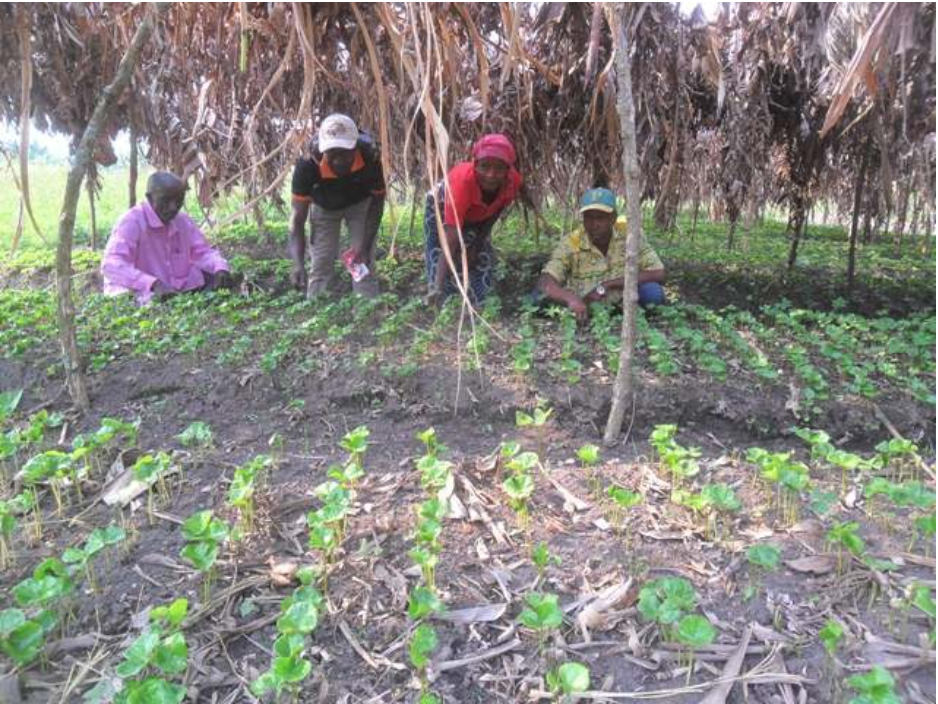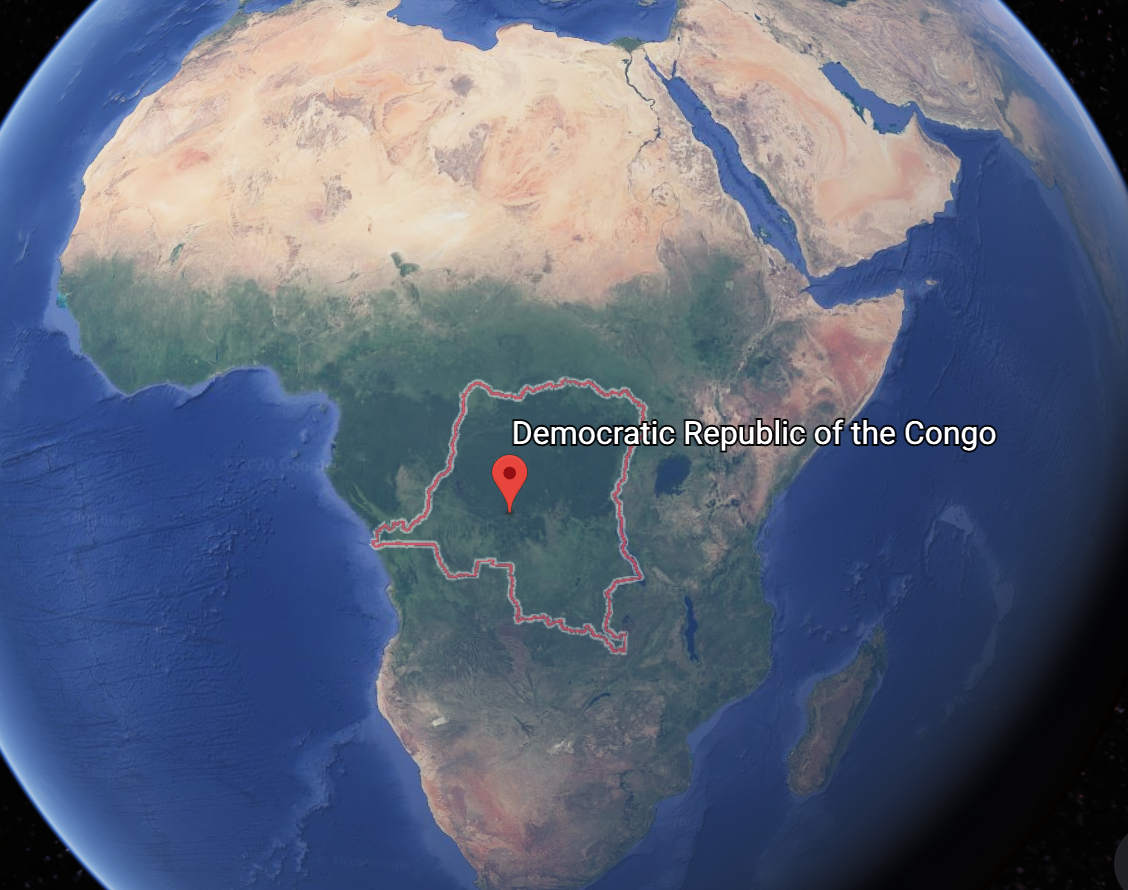UPDATE: This coffee has recently been awarded a 94 point score from Coffee Review. Check out the review here - https://www.coffeereview.com/review/dr-congo-gera-village-sopacdi/
Notes from the Master Roaster
Dennis Jackson is the Master Roaster at Conscious Cup. He has been buying, roasting, and teaching coffee since 2004. He is a Master Roaster, Coffee Buyer, Production Manager, and Green Coffee Consultant.
This coffee, by far, is the best DRC coffee I have ever had the pleasure of tasting. Brewed properly this coffee displays some outstanding qualities. Upon the first sip, the coffee is high in lemon/ lime acidity with nice caramel undertones. As the cup cools a bit the coffee becomes even juicier and the acidity turns into passion fruit and the caramel begins to come alive even more.
About Brewing:
I would really recommend this coffee be brewed by any method. The coffee shines in any pour-over method and manual drip as well. I was recently introduced to “Third Wave Water” which gives you the proper amounts of minerals when mixed into distilled water. I definitely recommend this for home brewing. We’ll be talking more about water quality in some future posts.
About the Coffee:
This fully washed coffee is located in the Gera Village, Kalehe Territory, South-Kivu Province.
It is run by 88 smallholder members of SOPACDI delivering to Geta MicroStation.
The varieties of this coffee are Blue Mountain, Bourbon, Caturra, Catuai, Kabare 2.
The elevation is approximately 1530 masl. (meters above sea level.
We’ve collected the information below from our importer, Cafe Imports
The Organization
SOPACDI (Solidarité Paysanne pour la Promotion des Actions Café et Development Intégral) is an organization comprising more than 5,600 farmers, roughly 20 percent of whom are women, located near Lake Kivu in the Democratic Republic of Congo. Each farmer has a very small area of farmland for coffee (fewer than 2 hectares on average), and tenders cherries to SOPACDI through the organization's 10 collection subgroups.
Joachim Munganga, who was a farmer himself, founded SOPACDI in 2003 by restoring a washing station in the area, which provided service and market access to the growers in these extremely remote highlands. Before he undertook this work, farmers had little to no means to transport coffee to the markets, and instead were forced to simply barter their coffee locally for food, clothing, and necessities. The cooperative was the first to achieve Fair Trade certification in Congo, and the coffee also carries organic certification. Members of the cooperative represent several different ethnic groups, speaking Kirundi, Kinyarwanda, and Kihavu, and many of the women members are widows.
These coffees are traceable to the individual washing stations, where members will deliver their coffee in cherry form and receive payment for what they bring, based on volume. After that point the coffee is sorted and will be separated into lots depending on the day and the quality, which makes it impossible to know which farmers’ coffees are in which lots.
At this washing station, coffee is de-pulped the day it is delivered, and fermented dry for 12 hours. Then it spends 12 under water before being passed through the washing canal, and then it is soaked for an additional 12 hours. The coffee is dried on raised beds under a cover of shade for 20–25 days. This particular "micro-station" serves 88 producers, including 17 women. The group represents about 52 total hectares of coffee farmland, which is just over half a hectare per producer on average.
HISTORY
Democratic Republic of the Congo (also known as DRC, but not to be confused with neighboring Republic of the Congo) is an interesting origin, just barely on the radar of specialty coffee. A long and established Robusta economy has been more prevalent in the coffee sector, and an emphasis on high-quality Arabica coffee is just gaining a foothold among producers. The country itself is the fourth most-heavily populated on the continent, and is the second-largest nation in Africa as well. Despite the population, however, resources such as roads, potable water, and electricity are scarce, and development within agrobusiness has been slow.
Coffee was introduced by European colonists, who owned and operated large plantations using local labor to tend to the fields—a history not unlike that of Kenya, Tanzania, and other colonized African nations. When the DRC achieved independence from Belgium in 1960, the land was broken up in redistribution schemes, with each new farmer getting a very small plot of land.
Until 1976, the national regulatory authority, Office National du Café (ONC) held a monopoly on the coffee-export market; liberalization and the elimination of price controls in the early 1980s created both opportunity and some chaos as the market equalized to determine pricing levels and structure. Similarly, the transition from a primarily plantation-based coffee-farming industry to one comprising thousands of smallholder farms was a somewhat difficult time for producers, as they struggled to gain a foothold in the market and to manage their own land and operations in a country that is still very much dominated by rural agriculture. Access to the market is exceptionally difficult, and political and economic unrest over the past few decades has made specialty-coffee growing and sourcing a challenge, but projects, organizations, and cooperatives such as SOPACDI are actively working to improve networks and infrastructure to bring top-quality lots to the international market.
Coffee is grown in most of the country, spread throughout its seven provinces, and is a significant cash crop, though most of what is grown and exported is either full Robusta or not specialty-quality. Investment projects and direct-sourcing projects are contributing to a general increase in profile and availability of better coffees, however, and the next few years looks very hopeful for Congolese coffees.




